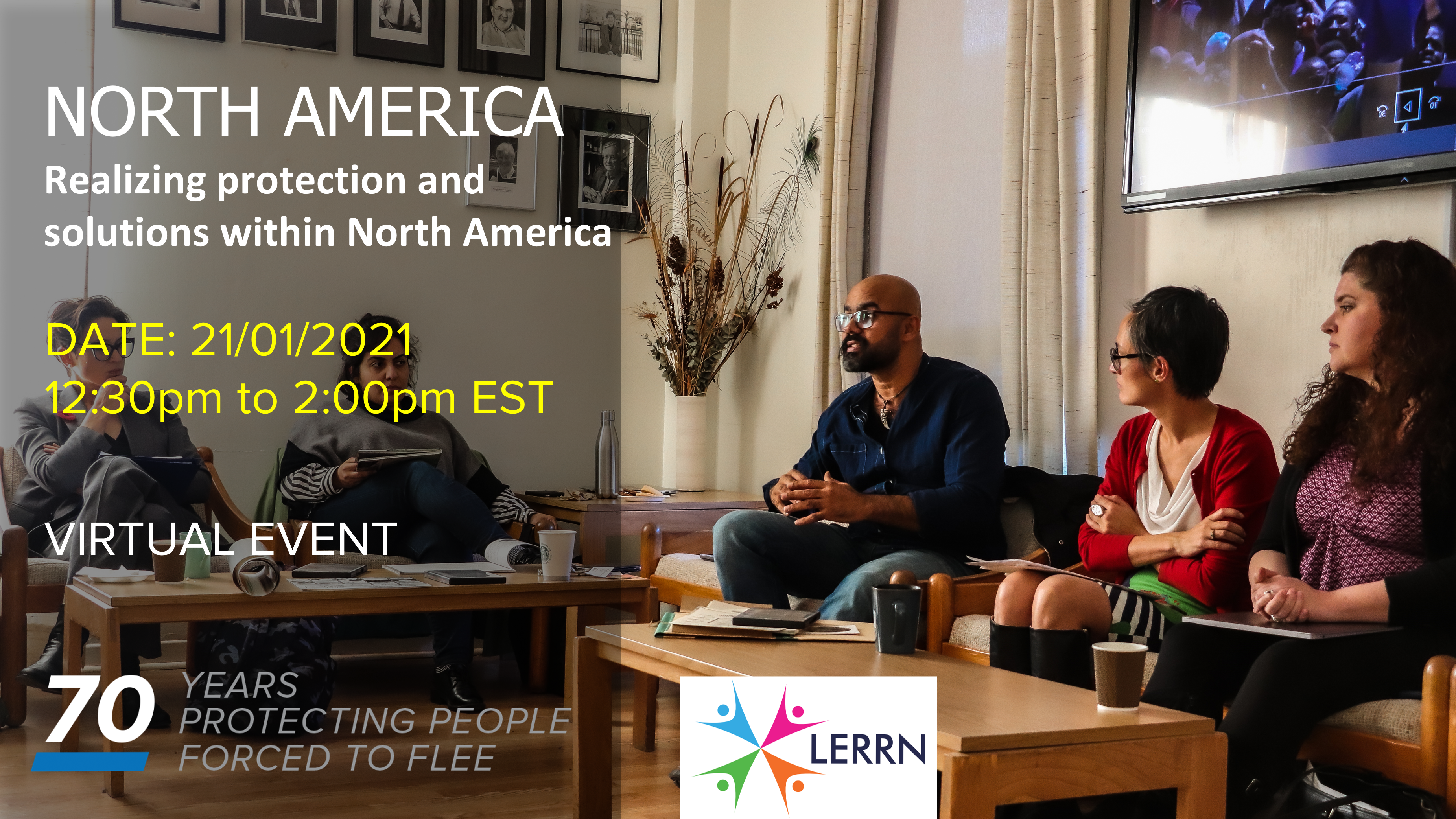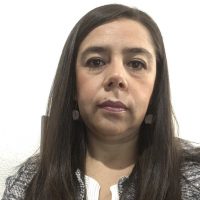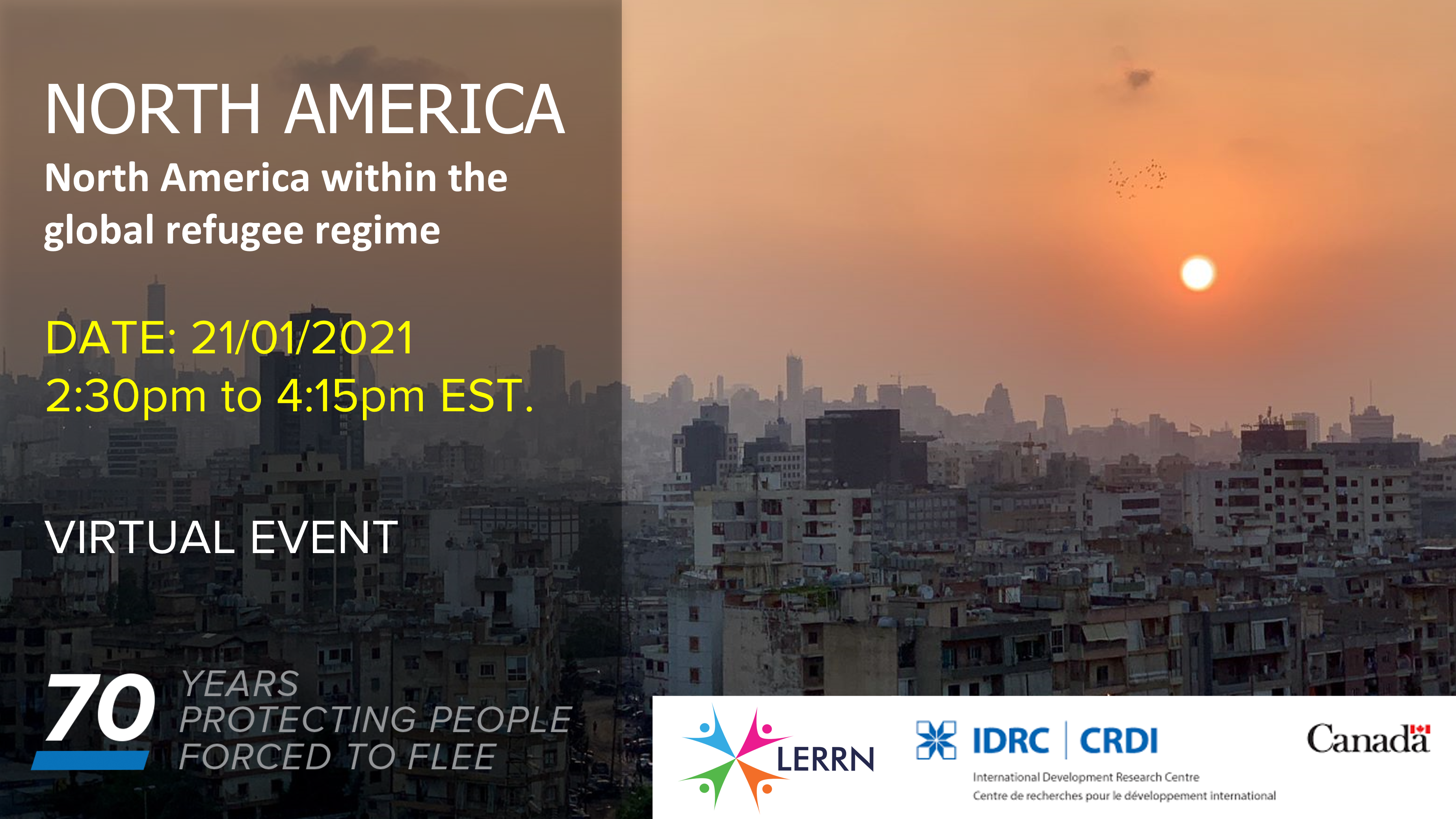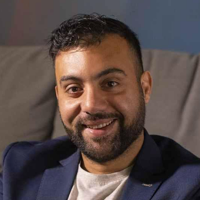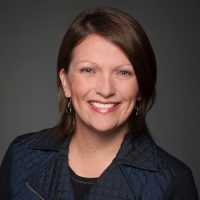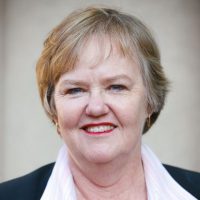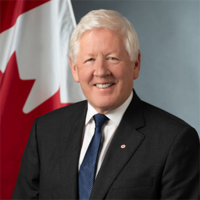Past Event! Note: this event has already taken place.
Virtual Conference: 70 Years Protecting People Forced to Flee – North American Panels
January 21, 2021 at 12:30 PM to 4:15 PM
| Contact Email: | lerrn@carleton.ca |
Please note: this event is comprised of two separate panels; please register using both registration links found below.
ASL Language Interpretation will be made available during this event.
Interpretación en español estará disponible durante este evento. [Ver esta pagina en español]
Interprétation de conférence en français sera offerte lors de cet événement. [Voir cette page en français]
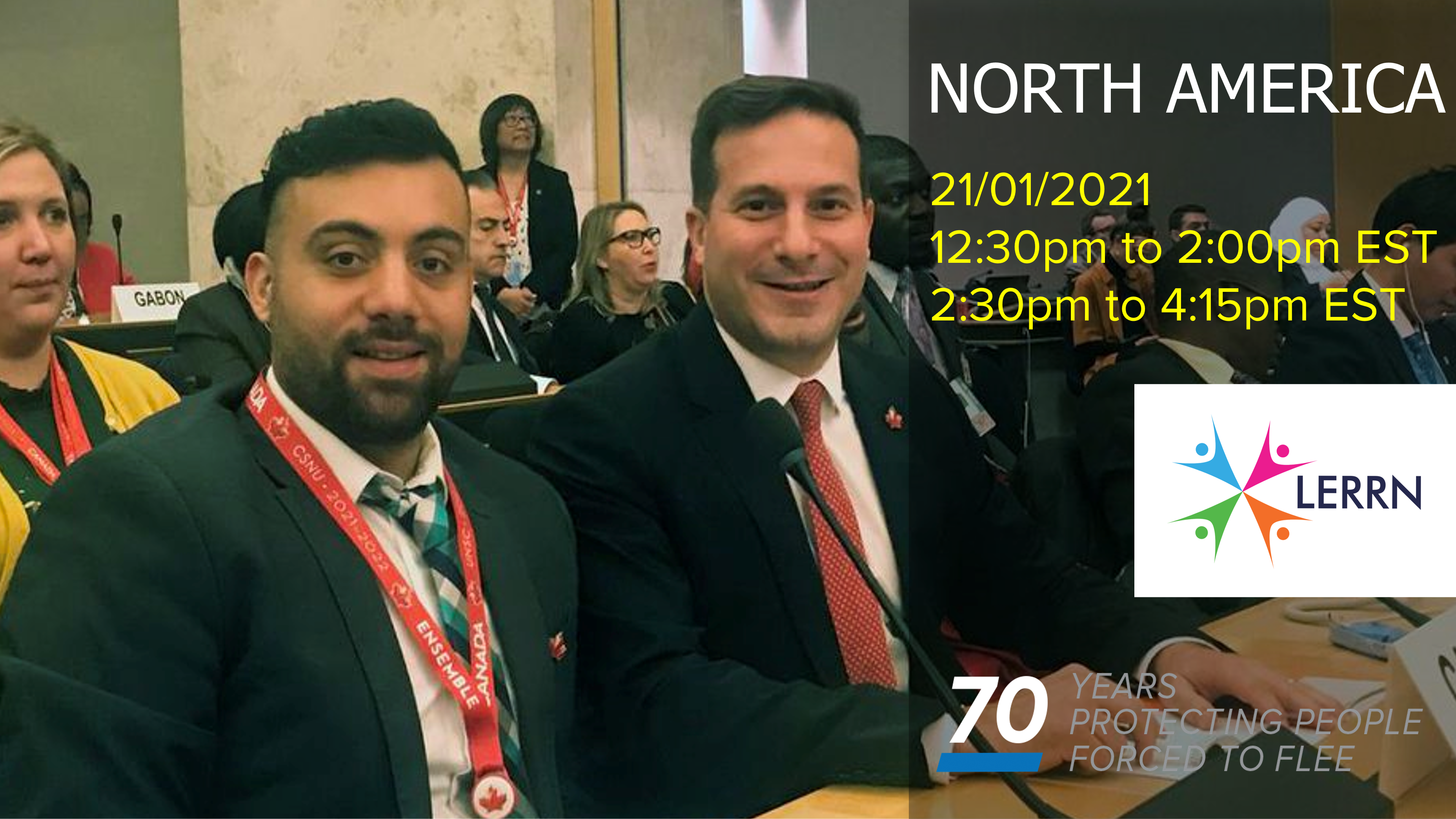
The virtual academic conference, “70 years protecting people forced to flee”, will take place on 18, 19, 21 and 27 January to mark the 70th Anniversary of the founding of the Office of the United Nations High Commissioner for Refugees. For more information, see the main page for the Virtual Conference.
On January 21st, LERRN will host two North American panels. These panels will consider North American perspectives on the “who, what, and how” of realizing protection and solutions, both within North American and through North American engagement in the global refugee regime.
Panel 1: Realizing protection and solutions within North America [12:30-2:00 pm EST]
This roundtable will be the first of two panels hosted by LERRN as part of the virtual global academic conference organized by UNHCR and GAIN for the 70th Anniversary of the UNHCR Statute. Panel 1 will examine the past, present and future of realizing protection and solutions within North America. It will consider challenges to protection (admission agreements, asylum access, detention, border practices) and solutions (integration, sponsorship, pathways to citizenship) in the North American context. It will consciously take a regional approach and include perspectives from Canada, the US and Mexico. It will consider differences and lessons from these various national contexts, from the perspective of state practice, civil society actors, the private sector, and sub-state actors, including cities and provinces or states.
In looking forward, the panel will consider future opportunities to realize protection and solutions in a hemispheric approach to displacement, including the potential to support regional approaches such as the MIRPS and identify examples of innovation that can be taken to scale. It will also reflect on the diversity of North American perspectives to understand how differences can be understood and approaches designed that speak to this diversity. This panel’s timing a day after Inauguration Day in the United States will provide a critical moment to consider how challenges can be addressed and future opportunities pursued.
The panel will conclude with a discussion of a future-looking agenda to advance protection and solutions within the North American context.
Co-moderators:
Panelists:
Panel 2: North America within the global refugee regime [2:30-4:15 pm EST]
Panel 2, co-hosted by LERRN and IDRC, will consider the role of North American states (Canada, the US and Mexico) as actors within the refugee regime. The panel’s timing a day after Inauguration Day in the United States provides a critical moment to look at the past, present and future roles of North American actors within the regime. These actors include the three states in the region, along with civil society, private sector, and sub-state actors. While the panel will take stock of past forms of engagement as donor states, asylum and host states, resettlement countries and leaders in policy development and diplomatic engagement, the panel will consider how North American perspectives can help advance dialogues on future questions and challenges facing the regime, including:
- Refugee inclusion and leadership
- Addressing diverse forms of displacement, including climate migration and internal displacement
- Linking humanitarian, development and peacebuilding responses
- Advancing localization and the inclusion of local perspectives in global discussions
The panel will include a critical reflection on issues of power and relations within and between actors in the refugee regime and the changing political context within which the refugee regime functions and within which UNHCR’s mandate needs to be pursued. This includes not only the interests of states in the functioning of the regime but also the state of public discourse and popular perspectives on approaching refugee movements through collective action and multilateralism.
